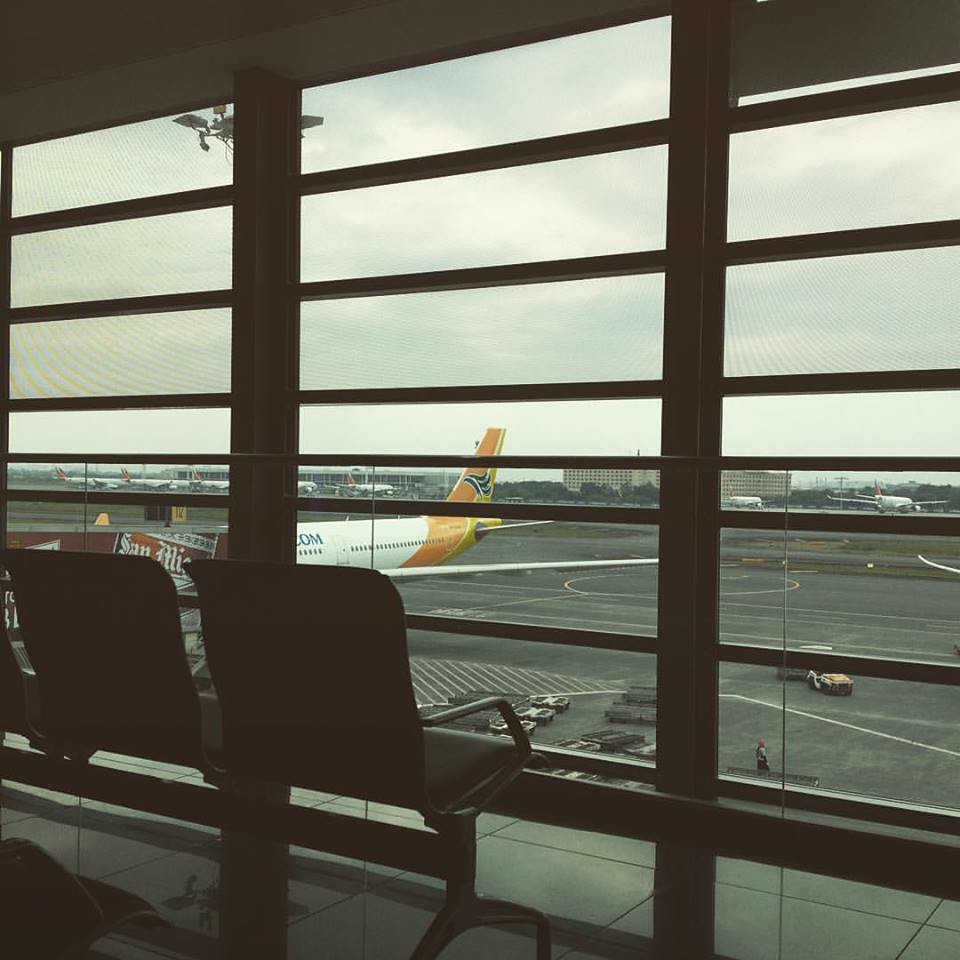With Christmas less than two weeks away, more and more of our kababayans are coming home to spend the holidays with their families. After living and working abroad with little to no family with them, returning home for the holidays is a much-awaited homecoming for overseas Filipino workers (OFWs). From balikbayan boxes filled to the brim and nightly reunions, the Christmas holidays is a grand celebrations for OFWs, and an expensive one.
OFWs want to make the most out of their short Christmas vacation. This usually means eating out regularly and going on a shopping frenzy. Besides, the costs of items and food in the Philippines are much cheaper than their prices abroad. Going out is no big deal. That is until the vacation is over, and it’s back to working abroad because of the little money that’s left after the holidays.
Here are my top 10 financial tips for OFWs during the holiday season as featured on MoneyMax.ph:
Differentiate needs from wants
“OFWs must learn how to compare and to distinguish the difference between needs and wants so that they will not get overwhelmed in buying things abroad before going home for the Holiday Season,” Burn begins.
A home is a need, but a mansion with five bedrooms when you’re living alone is a want. Separating your needs from wants will allow you to enjoy the simple joys of life.
Burn also adds that buying more wants versus needs may be caused by peer pressure. He then says, “They should not worry about other people like neighbors, former officemates, barkadas, and even relatives who are outside their immediate family circle as they are not their financial responsibilities anymore. These are the people who will not care about them if they lose their jobs abroad.”
Have a long-term mindset
Burn’s last statement – “These are the people who will not care about them if they lose their jobs abroad” – hits home. It’s important to have a long-term mindset than a short-term one.
Burn expounds on this statement and says, “Many OFWs are facing the risk of losing their jobs and mass layoffs abroad for several economic, environmental, political, and social reasons. Therefore, our OFWs should not only think about what they can spend this Holiday Season but rather have the mindset that the job they have today may not be there anymore after their Christmas vacation is done.”
It’s important to find a balance between your present and future self. Enjoy life’s experiences today, but prepare for your future as well. For OFWs, they must have the mindset that they can’t work forever, much more abroad. While they’re earning in foreign currencies, OFWs must save and invest as much as they can to increase their net worth at a faster rate.
Give presents that appreciate in value
“Should I really buy an iPad for my child or should I buy him/her school supplies or a health insurance plan instead?” is a question you should ask yourself especially during the Christmas season. Give your loved ones presents that appreciate in value over time. One of the best examples is investments.
“OFWs can open stock or mutual fund investment accounts for their spouses and children while abroad. They can also purchase health and life insurance for their spouses or college educational plans for their children online. Explaining to them that these are their Christmas presents for them will slowly but surely make them realize how you really love them and care for them.”
So when can you splurge on material things? When you’ve protected yourself through insurance and investments and have some money remaining after savings.

Have a Christmas budget before coming home
Before returning home to the Philippines, come up with a set budget. You can categorize them accordingly (e.g. presents, dining out, shopping, etc.). You can even leave a little buffer to accommodate last-minute and emergency expenses. Having a budget will allow you to limit your expenses and avoid careless spending.
Have just one Christmas celebration
Burn’s suggestion is one of the best ways to cut spending significantly:
“Instead of visiting every extended family or going out with longtime friends in a bar or restaurant, OFWs can instead prepare for a Christmas party and invite them over.
“Ask them to bring their food specialties to showcase and share to friends and relatives who will attend the party. Not only can this be a cheaper way to meet all of them but a venue to make them feel special. You will be surprised that you only have to spend for the rice, a couple of viands maybe, and a few bottles of drinks.”
What’s even better is that your friends and family members will get to know one another, and they’ll have more friends come the New Year. You’ve expanded everyone’s circle of friends and saved money at the same time.
Lead by example
There’s a misconception that OFWs always have surplus money since they’re earning in stronger currencies. Especially in this age of social media, it’s easy to believe the façade with numerous Facebook posts and pictures of exotic destinations and the newest trends and gadgets. This is also why relatives and friends end up asking for pamigay or pasalubong.
“If OFWs can show off their new gadget or branded outfit on their social media accounts, they can also proudly display the way they dress up in simplicity or how they choose buying the cheaper things over the expensive ones.
“Instead of posting the gifts or cash that they are going to give to their loved ones, they can share articles and images that promote saving money for their future, news items that tell about the economic crisis that the country they are working in is experiencing today, smart tips on giving simple but inexpensive creative presents, or probably quotes from famous personalities about frugality and entrepreneurship.”
“They can also share how they are preparing for their retirement years and that they will not rely on anyone else to do this but themselves.”
By showing your friends and family that you live a frugal lifestyle, it’s less likely that they’ll be asking for your financial assistance.
Limit gift-giving to immediate family members
“There is nothing wrong about giving pasalubong or gifts to our immediate loved ones because gifting is both a tradition and an expression of love and care among many Filipinos.”
The keyword is immediate loved ones. You do not have to give everyone who talks to you a present this Christmas. Take this tip a step further and have a set budget for presents you’ll gift your immediate family members.
Learn to say ‘no’
It’s common for friends and extended relatives to prod you to bring back pasalubong for them. Minsan ang lakas humirit ng ibang tao. You end up having no choice but to give in to them; however, if you don’t put your foot down, you can put your own finances at risk. You can do what Burn suggests:
“You can tell them that you cannot afford to borrow money anymore to pay for additional expenses because your salary is on an auto-saving or investing program with the bank.”
Of course, you should also be practicing what you preach. If you tell them that your money is tied in an auto-investing program, then you really should have that kind of investment.
Leave credit or debit cards at home
As with having a budget, leaving your credit or debit cards at home will curb your spending. This is because you’re wholly dependent on your cash on hand when you’re out. Unlike a credit card where your limit can exceed the money you have in your bank account, paying in cash will force you to be more in control of your spending since you don’t have a fallback (e.g. cards) when you run out of cash.
Manage local accounts
Before you go back to your country of employment, it’s best to manage all your local accounts. This will avoid penalties and fees for non-activity. Commonly, banks have a dormancy fee of Php 200 per month if your balance falls below the minimum balance after 1 or 2 years.
Other tips from Burn before you leave the Philippines are:
- Attend seminars conducted by stockbrokers, banks, and mutual fund companies. (if there’s a fee, it may be cheaper than attending one abroad)
- Discuss with the family about these accounts (insurance and investment policies included) and give them instructions on what to do should an unfortunate event happen in the future.
- Open a savings account.
- Open an investment account.
- Purchase health and life insurance for yourself and your family members.
- Rebalance investments to start the New Year right.
- Renew IDs and professional licenses.
Start the New Year Right
It’s difficult to fly back abroad after a memorable two-week Christmas vacation. Now, you’re alone with only the memory of your family and friends filling your thoughts. You remember the Noche Buena and the fireworks display. You remember the smiles on your children’s faces when they open their presents. You’re suddenly feeling homesick, but it’s best to remember that working abroad is a blessing. You’re in a foreign land to be able to provide a better future for you and your family, so it’s best to make the most out of it by working hard and saving and investing harder. Soon enough, you’ll be back home with your loved ones and living the lifestyle you’ve always wanted because you already achieved Financial Freedom.
We hope Burn Gutierrez’s 10 financial tips for OFWs will help you enjoy this Christmas season and start the New Year right!
Subscribe to RockToRiches|BurnGutierrez.Com and learn more!
Rock your way to abundance!
#moneyliferocknroll
—
If you want me to coach you in improving your finances, type your name and email below and click the Subscribe button:

